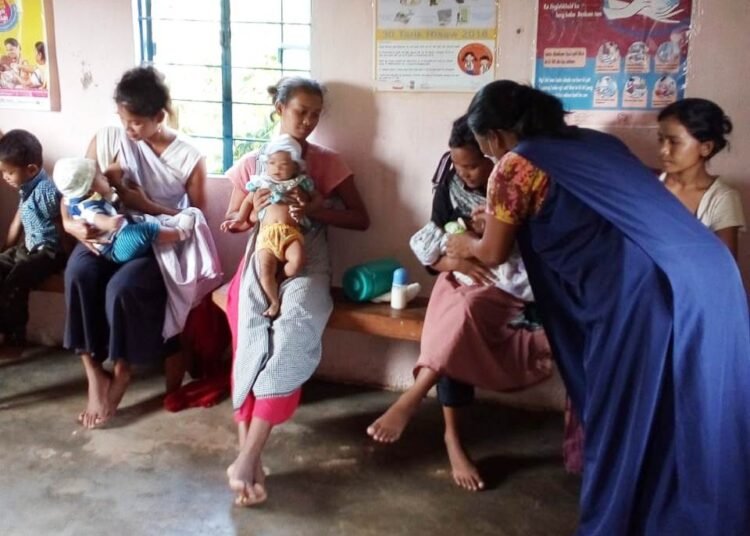Not practising exclusive breastfeeding for the first six months of a baby’s life could be the reason for Meghalaya’s high rates of stunting in children, the state Health and Family Welfare Department suspects.
Speaking to a reporter, Director of the National Health Mission (NHM) in Meghalaya, Ramkumar S, today said that in Meghalaya at the time of birth most babies are of normal weight, around 2-3kg, but within the first six months they tend to fall behind in expected weight.
In the state 45 per cent of children are stunted (low height for age), 12 per cent are wasting (low weight for height) and 26 per cent are underweight (low weight for age).
Backed up by vaccinations and one or two supplements, babies can thrive on mother’s milk alone for the first six months of their life and do not require anything else (except in special circumstances), not even water.
“We analyse data in each district and what we observed is that one of the main reasons (for stunting) is that there is not enough exclusive breastfeeding,” said the NHM Director.
He added that even educated mothers and fathers also are not aware of exclusive breastfeeding for six months, which is a must.
The department has taken the initiative to spread awareness during the first week of August as that is internationally recognised as World Breastfeeding Week.
Ramkumar further explained that mothers should understand that feeding the child sugar water, tea or water should be avoided.
“Water should be avoided completely. Only mother’s milk is important and it is proven again and again that exclusive breastfeeding is so important in terms of children gaining weight, helping them to develop their immunity and studies have shown this,” he emphasised.
In this awareness drive that has been launched in all districts, the Health Department is also reaching out to village health councils and others to ensure that the habit of exclusive breastfeeding actually picks up. This will help in the nutrition and both mental and physical growth of the child, added Ramkumar.
Apart from the nutritional benefits of mother’s milk, breastfeeding also helps a strong bond to develop between mother and child and this emotional connection can also have physical benefits on the infant.
For economic reasons, women may feel the need to return to work soon after giving birth and this could lead to the child being fed on something other than mother’s milk. Practices handed down from generation to generation, such as feeding babies sugar water, honey (particularly dangerous before 12 months), tea, rice water or other liquids are also hard to stop.
Some of these foods could cause diarrhoea in the child and, when that happens, the mother avoids feeding the child anything watery, which is again wrong, Ramkumar said.
“In fact you are supposed to give them something watery, i.e. the mother’s milk,” he said, adding that even women who are HIV positive are generally advised not to stop exclusive breastfeeding, so important is it to a child’s development.
Only in cases where the mother cannot lactate enough or at all should supplementary feeding be used. Then, after the child reaches six months, semi-solid food should be introduced as the baby will become more active and breastfeeding alone will be insufficient to keep them on the right track of gaining weight and growing mentally and physically.
























